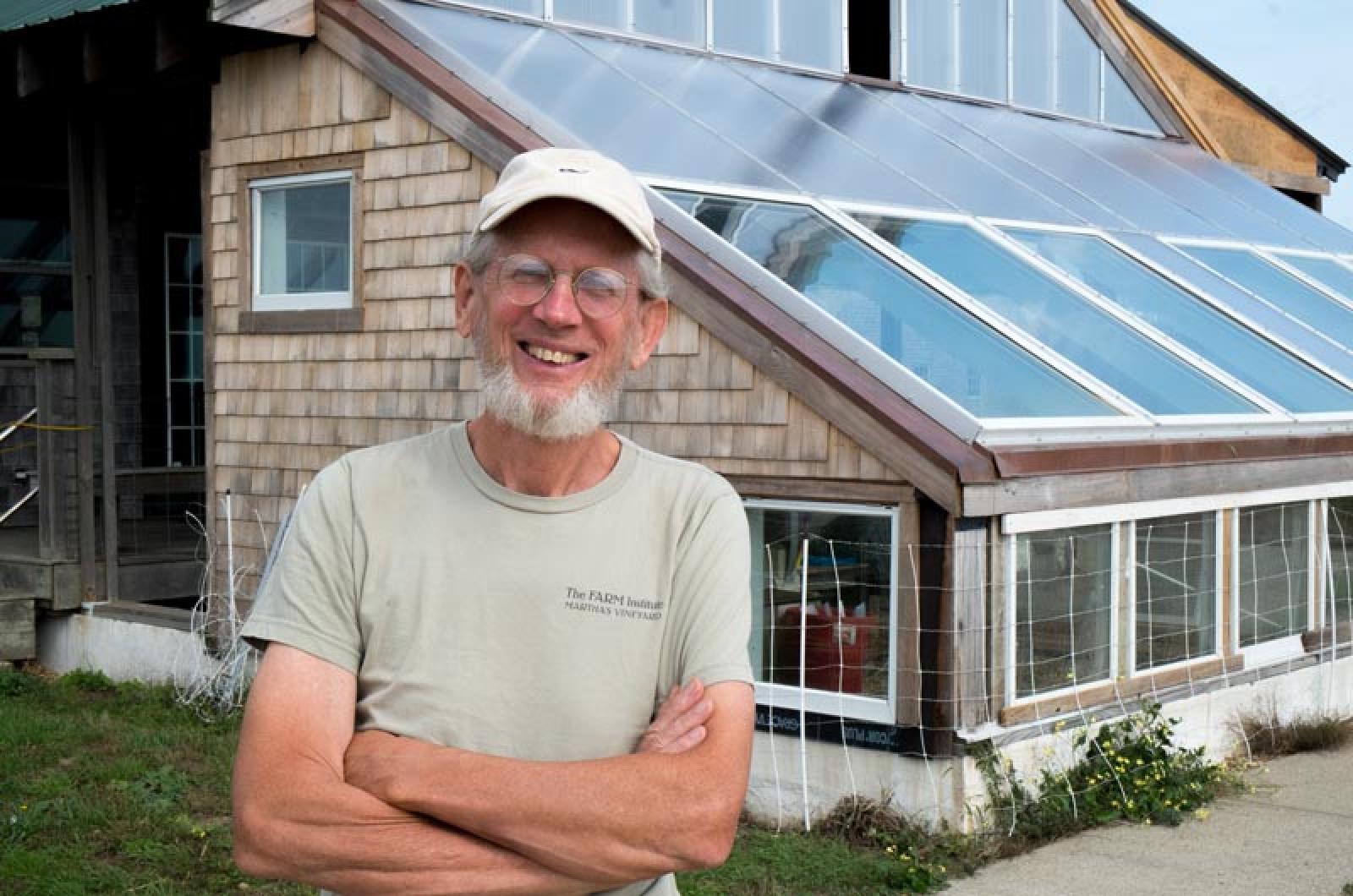Four years ago Sidney Morris was gazing out a window on the south end of the Farm Institute office building when inspiration wafted into sight.
“All I could think was, why isn’t there a solar greenhouse here? There are no trees here. This would be the best, most ideal site to build a greenhouse because it has the best solar exposure you could want or need,” he said.
At the time, Mr. Morris was the education director at the Farm Institute. “It’s rough teaching in the wintertime,” he said. “I thought building a solar greenhouse at the Farm Institute would be great for teaching kids and for growing food. And it would be economical because it could heat the whole building.”
The farm board backed Mr. Morris’s idea. As did the town of Edgartown, who own the Katama Farm land.
So with their support and permission, Mr. Morris pursued the project.
Now the 19-by-27-square-foot greenhouse, which is scheduled to be completed by Thanksgiving, will become a growing space for food production and seed germination for herbs and perennial plants.
“I was inspired to do it also because I’ve had one on my house on Chappaquiddick for the past 12 years now and it’s really an amazing contribution, I don’t have to run the heat in the house,” he said.
Planning for the greenhouse began in early 2011 and a series of workshops were held to map out design, excavation and foundation preparation at the site. In 2013, Mr. Morris left his role as education director on the farm but continued to work as the solar greenhouse project manager. Over the past four years, he said about 300 people have contributed to the greenhouse construction.
Progress has been slow for a number of reasons.
“I wanted everything to be educational, so the building process ended up taking a long time. People of all different ages helped build it. Mostly kids. Kids love to do menial tasks like shoveling gravel,” Mr. Morris said.
Plus he called the whole process, from planning to building, a shoestring operation. “We never wanted to do a big contractor bells and whistles type of thing,” he said. “We’ve used a lot of reclaimed materials, like all the small windows in the greenhouse were from a stack I found in 2009. I made it work. They were sliders out of a house on Chappy. We sort of have this reuse/recycle philosophy.”
Once finished, the greenhouse will generate heat for the office building and handle gray water management for kitchen wastewater. Salad greens, herbs and other produce will be grown all year long.
The space will continue to serve as a farm education site, something Mr. Morris said is near to his heart.
“I’ve been farming since I was six years old. I grew up on a farm in Philadelphia. My father died and my mother ran a day camp to make ends meet. Little did I know that 55 years later I would become a farm day camp director. Little did I know that I would end up working on a farm,” Mr. Morris said. “I never saw it coming, it just snuck up. I can’t help myself when it comes to giving people opportunities to learn stuff.”








Comments (1)
Comments
Comment policy »